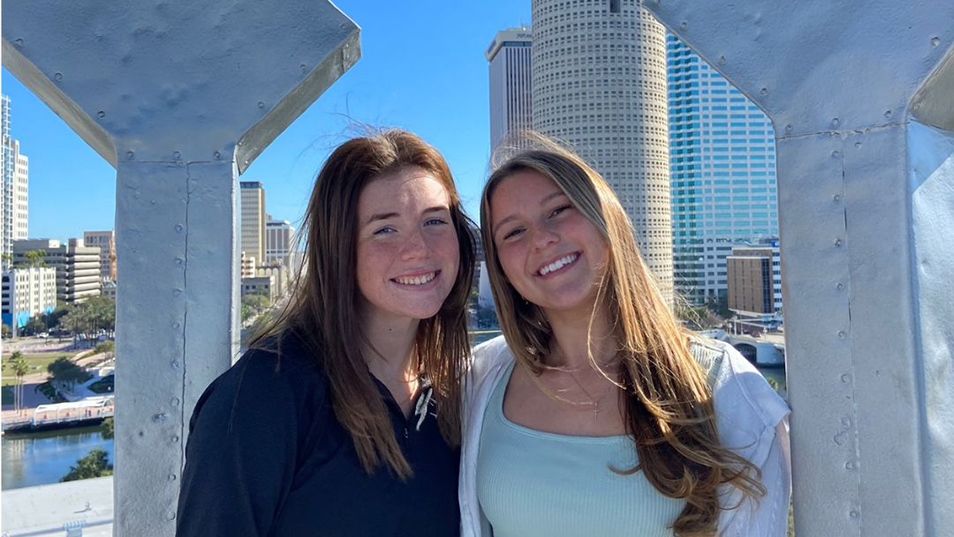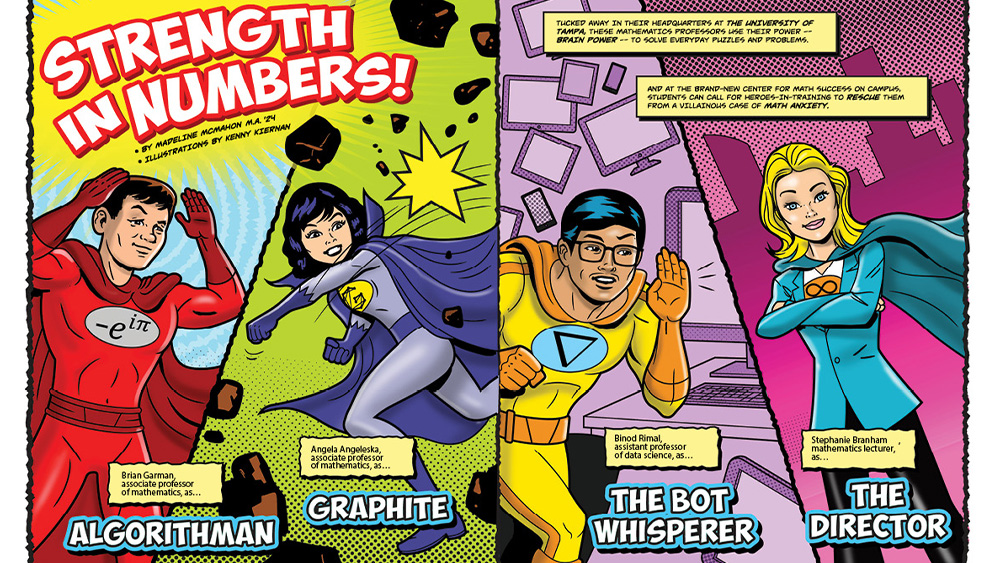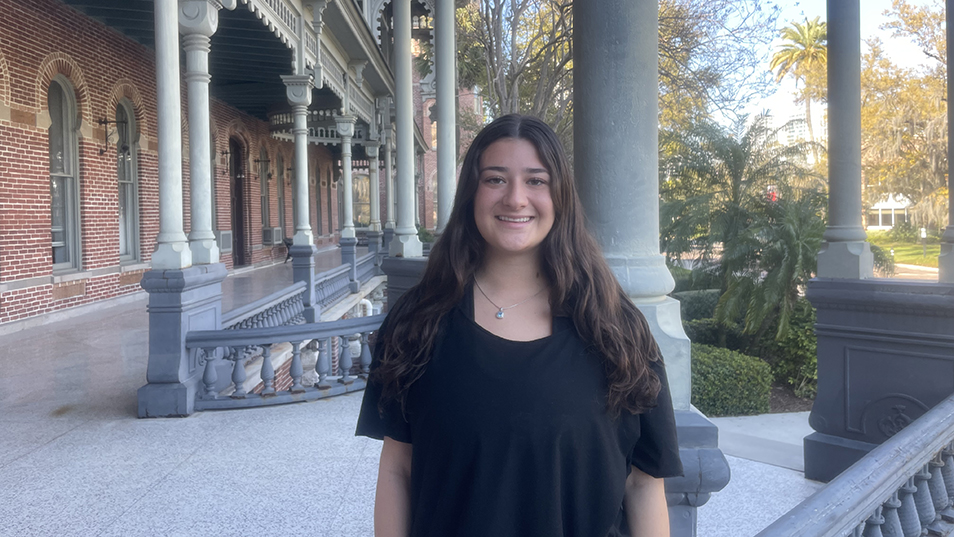Published: May 11, 2022
Commencement Speakers and Brothers Unpack Journey for Class of 2022
“Your journey will take you places you would have never expected,” Carlos Baldor Jr. ’87 told the candidates participating in the afternoon ceremony of UT’s 154th commencement on Saturday, May 7.
Baldor, president and chief technology officer of BST Global, pulled from his life experiences in motivating his fellow Spartans.
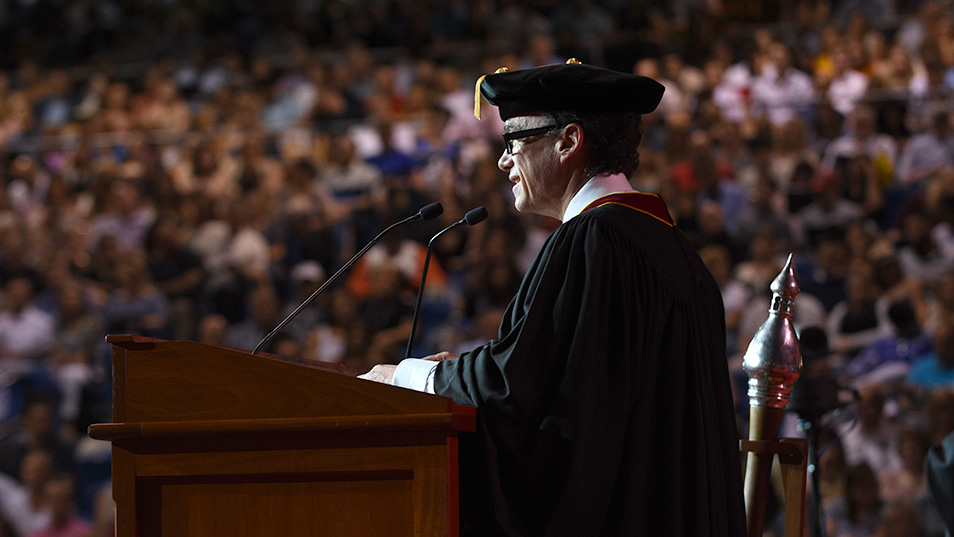 Carlos Baldor Jr. ’87, president and chief technology officer of BST Global, gave the afternoon address. Photo by Marsha Kemp
Carlos Baldor Jr. ’87, president and chief technology officer of BST Global, gave the afternoon address. Photo by Marsha Kemp
“Appreciating uncertainty better will help you adapt as circumstances change. Staying curious will help you learn about others and yourself,” he said. “The relationships you foster will help you along your way.”
The University of Tampa honored more than 1,700 students at its commencement. Between the two ceremonies, there were 1,488 bachelor’s degree candidates and 225 master’s degree candidates — 1,713 in all. Jessica Merrick '10, senior counsel for the IRONMAN Group, received the National Alumni Association Young Alumnus Award, and Nando Quinones '04, special agent for the U.S. Department of Homeland Security, Homeland Security Investigations (HSI), received the Alumni Achievement Award.
The University held two separate ceremonies at the Expo Hall at the Florida State Fairgrounds. At the morning ceremony, Carlos’ brother, Javier Baldor ’89, CEO of BST Global, gave the address, and Samuel DeJesus ’22 delivered the student challenge. In the afternoon ceremony, Gwendlyne Guido ’22 delivered the student challenge.
“When reflecting on what your degree represents, I think many falsely believe our education is the accumulation of classes we’ve taken,” said Guido, a political science major with a minor in philosophy. She said it’s not what’s been memorized, presented or recited.
“It is our interactions, it is our guiding faith in the benefits of education, it is whom we’ve gotten to know and love, and most importantly it is what we have learned to work through,” Guido said. “The value of education does not lie in the content but the process itself. Learning how to prioritize, how to identify what matters from what doesn’t … Are these not the things that should matter in life? Shouldn’t education not simply teach you arithmetic and history but also kindness and resilience?”
Javier Baldor agreed.
“To me the journey of life is not at all about accumulating assets or ascending to the highest level of this company or that organization by any means possible,” Javier Baldor said. “It is rather about somehow finding a way to make a true impact on the lives of those you love, those you know or perhaps those you have never even met. Your impacts can last well beyond our days here on Earth.”
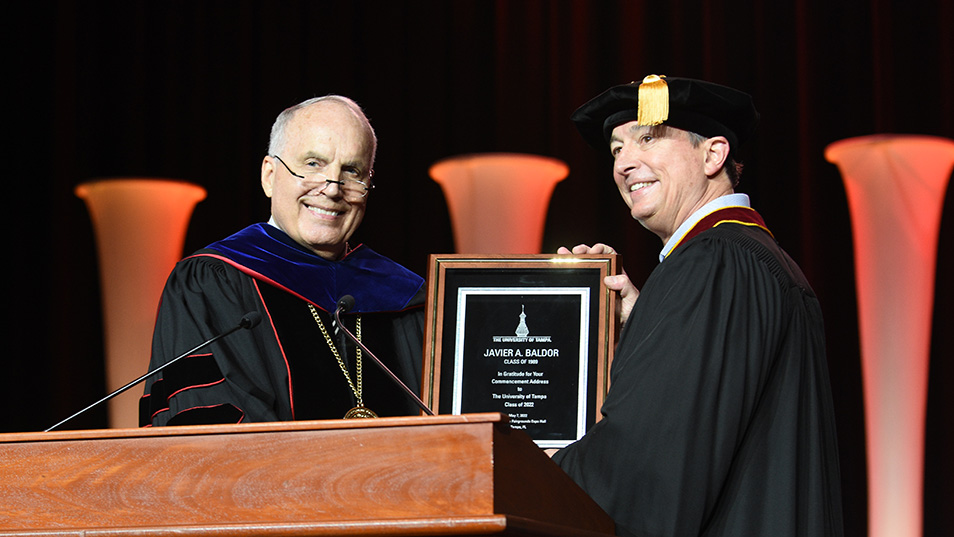 Javier Baldor ’89, CEO of BST Global, gave the morning address. Photo by Marsha Kemp
Javier Baldor ’89, CEO of BST Global, gave the morning address. Photo by Marsha Kemp
For the first time since 2009, in the afternoon ceremony, an honorary Doctor of Science was awarded to Leroy Hood, M.D., Ph.D.
Hood is one of only a small handful of people who have been elected to the National Academy of Sciences, the National Academy of Engineering and the National Academy of Medicine. When he was a faculty member at the California Institute of Technology, he and his colleagues developed genetic sequencers that paved the way for the Human Genome Project’s successful mapping and understanding of the human genome. He and his students also deciphered many of the complex mechanisms of antibody diversification that led to huge advances in immunology.
In 2000, Dr. Hood founded the nonprofit Institute for Systems Biology. Hood believes that a combination of big data and systems biology has the potential to revolutionize healthcare and create a proactive medical approach focused on maximizing the wellness of the individual. Hood is also currently CEO of Phenome Health, a nonprofit that is developing the Beyond the Human Genome (BHG) Project, based on the science of wellness, which will sequence the genes and generate the longitudinal phenomes of 1 million people over 10 years.

